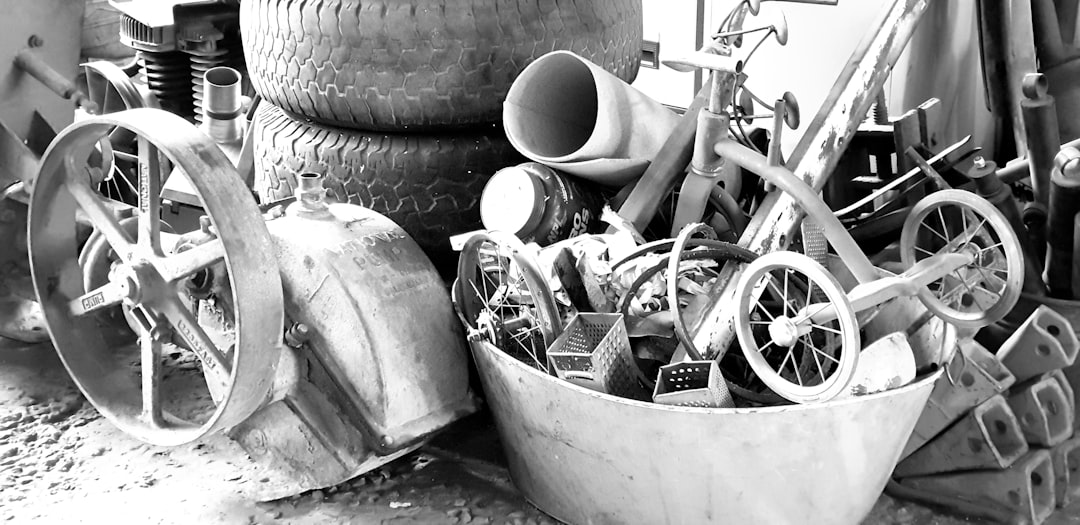 The Importance of Timely Hydraulic Valve Repair in New Jersey
The Importance of Timely Hydraulic Valve Repair in New Jersey
Hydraulic systems are an essential part of many industries, including construction, manufacturing, and agriculture. These systems rely on hydraulic valves to control the flow of fluid and pressure, ensuring that machines and equipment operate efficiently and safely. However, like any mechanical component, hydraulic valves can malfunction or fail, causing downtime, reducing productivity, and even posing safety risks. In New Jersey, where industries rely heavily on hydraulic systems, timely hydraulic valve repair is crucial to minimize downtime and ensure business continuity.
Understanding Hydraulic Valves
Before delving into the importance of hydraulic valve repair, it’s essential to understand how these valves work. Hydraulic valves are designed to control the flow of fluid, pressure, and direction in a hydraulic system. They are typically classified into two categories: directional control valves and pressure control valves. Directional control valves direct the flow of fluid to specific parts of the system, while pressure control valves regulate the pressure within the system. Hydraulic valves can be further divided into subcategories, including proportional valves, servo valves, and cartridge valves, each with its unique characteristics and applications.
Causes of Hydraulic Valve Failure
Hydraulic valve failure can occur due to various reasons, including wear and tear, contamination, overheating, and improper installation. Wear and tear are common causes of valve failure, as the valve’s moving parts can wear out over time, leading to leakage, sticking, or complete failure. Contamination is another common cause of valve failure, as dirt, debris, or moisture can enter the system and clog the valve, causing it to malfunction. Overheating can also cause valve failure, as high temperatures can damage the valve’s seals and components. Improper installation can also lead to valve failure, as incorrect mounting or alignment can put excessive stress on the valve, causing it to malfunction or fail prematurely.
Consequences of Hydraulic Valve Failure
The consequences of hydraulic valve failure can be severe, ranging from downtime and lost productivity to safety risks and equipment damage. When a hydraulic valve fails, it can cause the entire system to shut down, resulting in lost productivity and revenue. In addition, a failed valve can lead to equipment damage, as the system may continue to operate with reduced efficiency, causing wear and tear on other components. Furthermore, a malfunctioning valve can pose safety risks to operators, as it can cause unexpected movements or pressure surges.
Benefits of Timely Hydraulic Valve Repair
Timely hydraulic valve repair is essential to minimize downtime, reduce repair costs, and ensure safety. When a valve is repaired promptly, it can help prevent further damage to the system, reducing the risk of equipment failure and downtime. Additionally, timely repair can help reduce repair costs, as minor issues can be addressed before they become major problems. Furthermore, timely repair can ensure safety, as a malfunctioning valve can be repaired before it poses a risk to operators.
Choosing the Right Hydraulic Valve Repair Service
When it comes to hydraulic valve repair, it’s essential to choose a reputable and experienced service provider. Look for a service provider that has a proven track record of repairing hydraulic valves, and one that uses genuine parts and materials. Additionally, consider a service provider that offers 24/7 emergency repair services, as hydraulic valve failures can occur at any time. It’s also important to choose a service provider that has a team of experienced technicians who can diagnose and repair valve failures quickly and efficiently.
The Role of Preventive Maintenance
Preventive maintenance plays a critical role in preventing hydraulic valve failures. Regular maintenance can help identify potential issues before they become major problems, reducing the risk of downtime and repair costs. Preventive maintenance can include tasks such as cleaning and lubricating the valve, checking for signs of wear and tear, and testing the valve’s performance. Additionally, preventive maintenance can help extend the lifespan of the valve, reducing the need for frequent repairs and replacements.
Common Hydraulic Valve Repair Techniques
Hydraulic valve repair techniques vary depending on the type of valve and the nature of the failure. Common repair techniques include cleaning and lubricating the valve, replacing worn or damaged parts, and adjusting or recalibrating the valve. In some cases, the valve may need to be completely rebuilt or replaced, especially if the damage is extensive. Experienced technicians use specialized tools and equipment to diagnose and repair hydraulic valve failures, ensuring that the valve is restored to its optimal performance.
Conclusion
Hydraulic valve repair is a critical aspect of maintaining hydraulic systems in New Jersey. Timely repair is essential to minimize downtime, reduce repair costs, and ensure safety. By understanding the causes of hydraulic valve failure, the consequences of failure, and the benefits of timely repair, you can take proactive steps to prevent valve failures and ensure that your hydraulic system operates efficiently and safely. Remember to choose a reputable and experienced service provider, and consider preventive maintenance to extend the lifespan of your hydraulic valves.
Learning The “Secrets” of
Why Aren’t As Bad As You Think
Truck Hauling Services: Your Service for Reliable Transportation
 Furnishings Setting Up Solution: The Ultimate Option for Your Home and Office Demands
Furnishings Setting Up Solution: The Ultimate Option for Your Home and Office Demands
 Siding Specialist: Your Guide to Choosing the Right Expert for Your Home
Siding Specialist: Your Guide to Choosing the Right Expert for Your Home